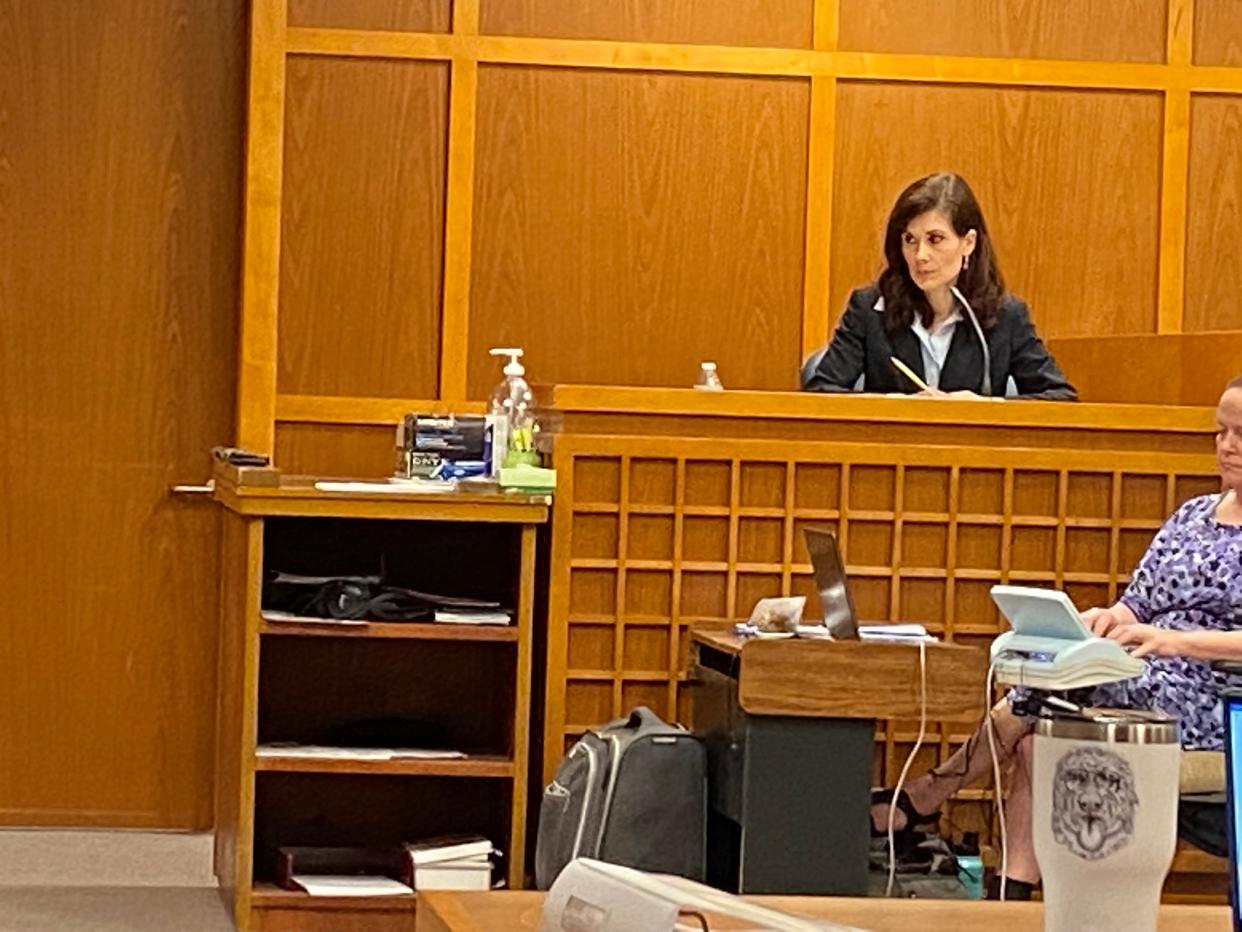Prosecution experts testify in Jeremy Main death penalty trial

TAVARES — No one can know with certainty what Jeremy Main was thinking on Oct. 9, 2017, the day he drowned his 17-month-old baby, the state’s expert mental health expert testified Thursday.
“We’re left with a huge abyss," said Kimberly Brown, Ph.D. "There is a lack of data to connect his actions to the crime of the crime."
There is plenty of mental illness history leading up to the event, and information about what he's thinking now, but defense experts either didn’t ask why he killed Makenzie, or he didn’t bring it up.
Brown did ask, however, and got what she said was a surprising answer: “It was an accident.”
The 12-member jury already rejected that claim, convicting him of first-degree premeditated murder. This week, the jury is hearing testimony from defense and prosecution experts who are trying to persuade them to recommend life in prison or the death penalty, respectively.
Jurors will begin penalty phase deliberations after the lawyers make their closing arguments before Circuit Judge James Baxley.
More from the penalty phase:Defense psychologist: Jeremy Main could not 'appreciate the consequences' of drowning his baby
Jeremy Main defense experts:Mental illness led to daughter's drowning death
Life or death?:Penalty phase begins in Lady Lake man's murder trial
Main told Brown that he forgot to take Makenzie’s diaper off and put her in the tub. She had played in the tub before and was fine, he said.
Main took the dog out for a walk and when he came back, she was dead, he told Brown.
Less than an hour later, he surrendered to police saying, “Y’all are looking for me. I just killed my daughter and tried to kill myself.”
Defense attorneys argued last week in their hope for an aggravated manslaughter conviction that it was not a confession of murder, but of accidentally killing Makenzie.
Jurors will decide if he should be executed or face life in prison. The defense experts said he could not appreciate the criminality of his actions, and that he was under the influence of an emotional or mental disturbance, two statutory mitigators that could keep him off death row.
Brown disagrees with both statements.
Mentally ill? Yes, she said, but Brown wasn't sold on some of their diagnoses, including bipolar and schizotypal personality disorders.
She agreed with the experts that said he suffers from borderline personality disorder and its symptoms of fear of abandonment, suicidal thoughts, failed relationships, poor self-image, chronic feelings of emptiness and other issues.
The verdict: Jury finds Jeremy Main guilty of murdering his baby; he could face the death penalty
More trial coverage: How did Makenzie die? Dueling pathologists testify in Jeremy Main murder trial
‘Cold’: At trial, Lady Lake woman describes ex-husband’s tone when he said he killed their child
Main’s sister, Marnee Weakley, testified that it was “hell” growing up, with family violence, emotional and physical abuse, their father’s suicide, and a stepfather’s alcoholism.
Brown also diagnosed Main with persistent depressive disorder.
“No one chooses to have borderline personality disorder, do they?” Assistant Public Defender Morris Carranza asked.
“No one would choose it,” Brown agreed.
She then made a chilling comparison: Glenn Close’s character in the 1987 movie, “Fatal Attraction,” a dangerously mentally ill woman who was obsessed with her lover.
Main's then-wife, Holly Farrington, wanted a divorce, and Main, who has never been able to keep a job, would have to start looking for one.
This article originally appeared on Daily Commercial: Prosecution's mental health experts testify in Lady Lake man's murder trial

